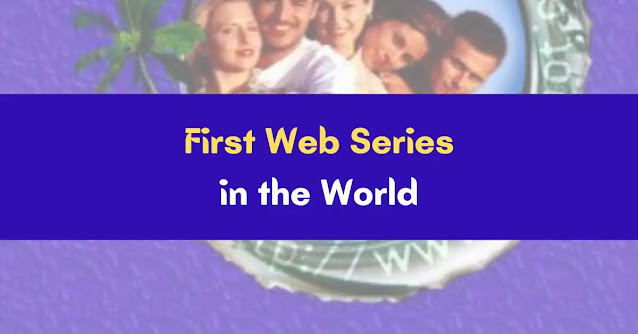The Spot: The Groundbreaking First Web Series in the World
The world of entertainment has seen a significant shift over the years, and one of the most prominent changes has been the rise of web series. These series, which are primarily distributed through online streaming platforms, have gained immense popularity over the past decade. However, the concept of web series is not entirely new, and it dates back to the early days of the internet.
The first web series in the world can be traced back to the late 1990s when the internet was still in its nascent stage. At the time, the concept of streaming video content was still a novelty, and there were few platforms available for creators to distribute their content. Despite these challenges, a group of innovative individuals decided to create a web series, and their efforts laid the foundation for the explosion of web series that we see today.
The first web series in the world was a science fiction series called "The Spot." The series was created by Scott Zakarin and was launched in 1995. The series was produced for the now-defunct internet service provider, CompuServe. The show was a hit among users of the platform, and it quickly gained a cult following.
"The Spot" was a groundbreaking show that set the standard for the web series that followed. The series was made up of short, serialized episodes that were released on a weekly basis. The episodes were shot in a handheld style and featured a cast of unknown actors. The show's production values were not particularly high, but it was the innovative storytelling and the use of the internet as a distribution platform that set it apart from traditional TV shows.
The series followed the lives of a group of young adults who hung out at a fictional nightclub called "The Spot." The show tackled a range of issues, including love, relationships, and sexuality. It was considered controversial at the time, but it was also a reflection of the changing times and the way that people were using the internet to connect with one another.
"The Spot" ran for four seasons and a total of 40 episodes. It was eventually cancelled due to financial issues, but its legacy lived on. The show was a pioneer in the world of web series and paved the way for other creators to experiment with the format.
Following the success of "The Spot," other web series began to emerge. One of the most notable was "Lonelygirl15," which premiered in 2006. The show was presented as a video blog by a teenage girl named Bree, who shared her thoughts and experiences with her viewers. The show quickly gained a massive following, and its creators were eventually revealed to be a group of filmmakers.
"Lonelygirl15" was groundbreaking in its use of interactive storytelling. The show's creators incorporated audience feedback into the storyline, and viewers were able to interact with the characters through social media. The show was a massive hit, and it paved the way for other interactive web series, such as "The Lizzie Bennet Diaries" and "Emma Approved."
Today, web series are a massive industry, and they continue to grow in popularity. Platforms like Netflix, Hulu, and Amazon Prime have all launched their own web series, and there are now thousands of independent web series available online. The rise of web series has also created new opportunities for creators, who can now produce content without the need for a traditional studio or network.
In conclusion, the first web series in the world was "The Spot," a science fiction series that premiered in 1995. The show was a groundbreaking experiment in storytelling, and it paved the way for the explosion of web series that we see today. The success of "The Spot" demonstrated that the internet was a viable distribution platform for video content, and it inspired other creators to experiment with the format. Today, web series are a massive industry, and they continue to push the boundaries of storytelling and engage audiences in new and exciting ways. With the rise of social media, creators can now interact with their audiences on a level that was once unimaginable. This has led to the development of interactive web series, which blur the lines between fiction and reality and create a more immersive viewing experience.
Moreover, web series have also created opportunities for underrepresented voices in the entertainment industry. Independent creators can now produce content and reach a global audience without the need for traditional gatekeepers. This has led to the emergence of web series that tackle diverse subjects and explore perspectives that are not often represented in mainstream media.
The success of web series has also disrupted the traditional television industry. Streaming platforms like Netflix and Amazon Prime have revolutionized the way we consume content, and they have given audiences more control over what they watch and when they watch it. This has led to a surge in the production of high-quality content and has created new opportunities for actors, writers, and producers.
Related Posts :
In conclusion, the first web series in the world, "The Spot," was a pioneer in the world of web series, and it set the standard for the thousands of series that followed.
It demonstrated that the internet was a viable distribution platform for video content, and it inspired other creators to experiment with the format. Today, web series are a massive industry, and they continue to push the boundaries of storytelling and engage audiences in new and exciting ways. They have created new opportunities for underrepresented voices in the entertainment industry and have disrupted the traditional television industry.


No comments:
Post a Comment